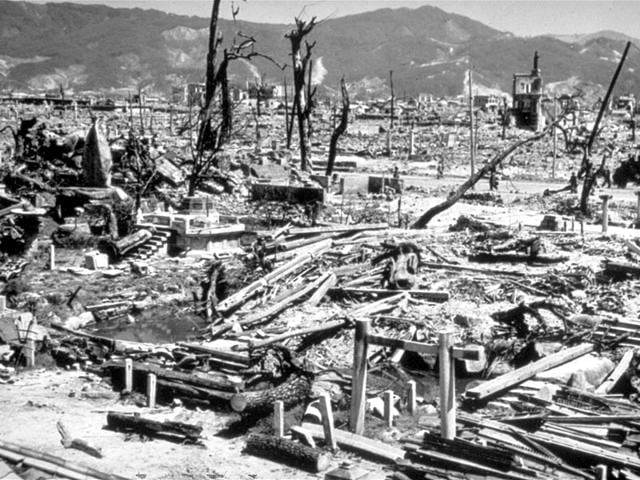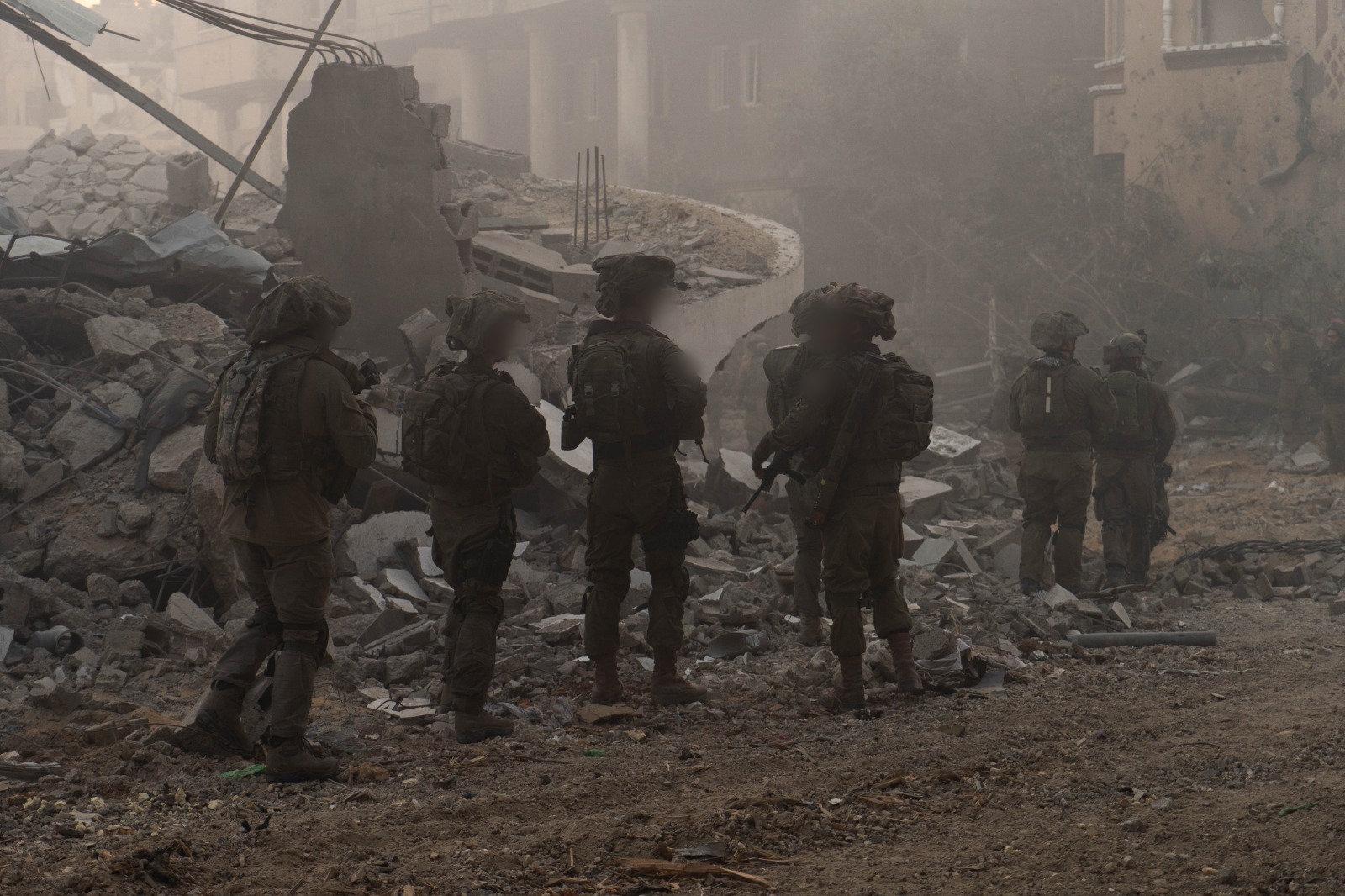A black hole has immense gravitational force, while a nuclear bomb releases energy through fusion or fission reactions. In the cosmic realm, black holes are mysterious objects known for their powerful gravitational pull, capable of even trapping light.
On the other hand, nuclear bombs are man-made weapons engineered to unleash devastating energy through nuclear reactions. Understanding the differences between these two forces—nature’s gravitational behemoth and humankind’s destructive creation—sheds light on the contrasting powers they hold. By exploring the unique characteristics and implications of black holes versus nuclear bombs, we gain insights into the vast contrasts between the forces that shape our universe and those that we wield in our ongoing quest for power and knowledge.
The Science Behind Black Holes And Nuclear Bombs
Delve into the intriguing realms of Black Holes and Nuclear Bombs to uncover the captivating scientific phenomena that govern these two powerful forces.
What Is A Black Hole?
A Black Hole is a cosmic entity with an intense gravitational pull that swallows everything, including light.
How Does A Nuclear Bomb Work?
A Nuclear Bomb operates by splitting atoms to release an immense amount of energy in a chain reaction.
Destructive Power
In the clash of destructive forces, the comparison between a Black Hole and a Nuclear Bomb is nothing short of mesmerizing. Both entities possess an immense power that can bring about unfathomable destruction. Let’s delve into the world of Destructive Power and explore how these titans of annihilation stack up against each other.
Comparing The Destructive Potential
When we consider the Destructive Potential of a Black Hole compared to a Nuclear Bomb, the sheer magnitude of their capabilities is astounding. While a Nuclear Bomb releases an intense burst of energy in a concentrated area, a Black Hole has the power to devour entire galaxies with its overwhelming gravitational pull.
Impact On Surroundings
The Impact on Surroundings caused by a Black Hole and a Nuclear Bomb varies greatly. While a Nuclear Bomb can devastate everything within its blast radius, a Black Hole’s gravitational forces can distort space-time, affecting objects and light around it in a profound and irreversible manner.
Formation And Occurrence
When comparing the sheer power and impact of black holes and nuclear bombs, it’s essential to understand their formation and occurrence. Each phenomenon results from distinct processes, whether in the depths of space or through human ingenuity.
Natural Formation Of Black Holes
Black holes are formed through the collapse of massive stars. When a star exhausts its nuclear fuel, it can no longer support itself against gravitational forces, leading to a dramatic collapse. This event results in the formation of a black hole, a region of space with an incredibly strong gravitational pull from which no light can escape.
Man-made Creation Of Nuclear Bombs
Nuclear bombs are created through a process known as nuclear fission or fusion. This involves the splitting or combining of atomic nuclei, resulting in an immense release of energy. The creation of nuclear bombs is a result of human scientific and technological advancements, involving the controlled release of nuclear energy for destructive purposes.
Detection And Observation
When it comes to exploring the mysteries of the universe, scientists have always sought innovative ways to detect and observe its most intriguing phenomena. Two such captivating objects that have intrigued scientists and researchers alike are black holes and nuclear bombs. Although vastly different in nature, detecting and observing both black holes and nuclear bomb tests require unique methodologies and technologies.
Detecting Black Holes
Black holes, often described as cosmic vacuum cleaners, are difficult to detect because they absorb all matter and light that enters their event horizon. However, scientists use various techniques to identify the presence of these celestial objects. One such method involves studying the behavior of surrounding stars. When a star orbits an invisible object, its movement betrays the gravitational pull of a black hole. This process, known as astrometry, allows scientists to infer the presence of a black hole by observing the anomalies in the stellar orbits. Another successful technique is called gravitational lensing, where the massive gravitational attraction of a black hole bends the trajectory of light passing near it, resulting in a distorted image.
Observing Nuclear Bomb Tests
Just as detecting black holes is a challenging task, observing nuclear bomb tests also requires specific procedures. In the past, countries conducted numerous nuclear bomb tests to analyze their destructive power. To monitor these tests, scientists used seismometers, devices that detect and record ground movements caused by nuclear explosions. Seismology played a crucial role in quantifying the magnitude and energy released during nuclear detonations. Additionally, aerial surveillance such as aircraft and satellites equipped with cameras and radiation sensors provided valuable data on the size and effects of nuclear explosions. Imaging technology enabled scientists to gain insights into the shockwaves, fireballs, and radioactive clouds produced by nuclear bomb tests.
In conclusion, detecting black holes and observing nuclear bomb tests demand specialized techniques and instruments. While the detection of black holes relies on astrometry and gravitational lensing, observing nuclear bomb tests calls for the use of seismometers, aerial surveillance, and imaging technology. Despite their disparate nature, both fields of study shed light on the secrets of the universe and enhance our understanding of the forces that govern it.
Theoretical Applications
In the world of science, there are certain phenomena that captivate our imaginations and push the boundaries of our understanding. Two such phenomena are black holes and nuclear bombs. Though vastly different in nature, both have potential theoretical applications that have fueled scientific research and exploration. Let’s delve into the theoretical applications of black holes and nuclear bombs and explore the intriguing possibilities they present.
The Role Of Black Holes In Cosmology
Black holes, mysterious and powerful entities, play a crucial role in our understanding of the cosmos. They are cosmic vacuum cleaners, accumulating mass and energy through their intense gravitational pull. This process has led scientists to theorize that black holes could have significant effects on the evolution and structure of galaxies. They may be responsible for shaping the universe as we know it, influencing the growth of stars, and even acting as a catalyst for galaxy formation. The study of black holes continues to offer valuable insights into the fundamental laws of physics and the nature of our universe.
Potential Uses Of Nuclear Bombs
While the destructive power of nuclear bombs is widely known, it is important to recognize that their potential applications extend beyond warfare. In certain controlled environments, nuclear reactions can be harnessed to generate vast amounts of energy. Nuclear power plants utilize the process of nuclear fission to generate electricity, providing an alternative to conventional sources of energy. Furthermore, nuclear bombs have been proposed for potential asteroid defense, where the controlled explosion of a nuclear bomb near an incoming asteroid could alter its trajectory and prevent a catastrophic collision with Earth. Although such applications are highly theoretical and subject to extensive research and scrutiny, they highlight the possibility of using nuclear bombs for noble purposes beyond the devastating consequences associated with warfare.

Credit: www.hindustantimes.com
Ethical And Moral Considerations
Exploring the ethical and moral considerations surrounding black holes and nuclear bombs is essential in understanding the implications of their use and study. Delving into the potential catastrophic impact of both phenomena demands a thoughtful examination of the responsibility and consequences associated with these powerful forces.
It’s crucial to approach this comparison with a deep sense of ethical reflection and societal accountability.
Ethical and Moral Considerations One of the most significant aspects of considering the impact of black holes and nuclear bombs revolves around the ethical and moral implications. Both black holes and nuclear bombs have raised critical debates due to the potential consequences of their existence and use.
Controversies Surrounding Nuclear Weapons
In the context of nuclear weapons, there has been extensive debate regarding their deployment and proliferation. The ethical dilemma arises from the catastrophic impact on humanity and the environment in the event of their use. The controversy surrounding nuclear weapons has been a focal point in global discussions on disarmament and non-proliferation efforts.
Implications Of Black Hole Research
The research and exploration of black holes also evoke ethical and moral implications. The discoveries related to black holes have prompted deliberations about the potential risks and benefits associated with deep space exploration. The ethical considerations include the impact of black hole research on cosmic ecosystems and the preservation of celestial bodies. Ultimately, the ethical and moral considerations surrounding black holes and nuclear bombs are multifaceted and continue to be integral to discussions on global security and cosmic exploration. The balance between scientific advancement and ethical responsibility requires careful consideration in navigating the potential impacts of these phenomena.
Scientific Exploration
Understanding how black holes form and function.
Exploring the evolution of nuclear bomb capabilities.

Credit: www.timesofisrael.com
Future Implications
Exploring the comparison between a black hole and a nuclear bomb offers intriguing insights into the vast expanse of space and the devastating power of human-created destructive weapons.
Global Impact Of Nuclear Warfare
Nuclear warfare brings catastrophic consequences on a global scale.
- Destruction of cities and entire regions
- Long-term environmental damage
- Health risks for generations
Understanding The Universe Through Black Holes
Black holes provide a glimpse into the mysteries of the universe.
- Gravity’s immense power
- Time dilation and space distortion
- Potential wormholes and parallel universes
Frequently Asked Questions On Black Hole Vs Nuclear Bomb
Q: Which Is More Powerful: A Black Hole Or A Nuclear Bomb?
A: The power of a black hole far surpasses that of a nuclear bomb. While a nuclear bomb releases a tremendous amount of energy, a black hole has gravitational pull so intense that not even light can escape. Its immense mass and compression of matter make it many millions of times more powerful than any nuclear explosion.
Q: Can A Black Hole Destroy A Nuclear Bomb?
A: Yes, a black hole can absolutely destroy a nuclear bomb. The gravitational pull of a black hole is so strong that any object near its event horizon, including a nuclear bomb, would be stretched and torn apart in a process known as spaghettification.
The bomb’s components would be reduced to atomic particles and sucked into the black hole.
Q: What Happens When A Black Hole Collides With A Nuclear Bomb?
A: If a black hole were to collide with a nuclear bomb, it would result in the bomb being completely absorbed by the black hole. The intense gravitational forces would cause the bomb’s matter to be compressed and condensed, adding to the mass of the black hole.
The explosion from the bomb would be futile against the overpowering pull of the black hole.
Q: How Does The Destructive Power Of A Black Hole Compare To A Nuclear Bomb?
A: The destructive power of a black hole is on an entirely different scale compared to a nuclear bomb. A nuclear bomb releases energy in the form of an explosion, affecting its immediate surroundings. In contrast, a black hole’s gravitational forces can destroy entire star systems and distort the fabric of spacetime, far surpassing the reach and impact of a nuclear bomb.
Conclusion
While both black holes and nuclear bombs are powerful, they serve different purposes in the universe. Understanding the science and impact of these phenomena is crucial for advancing our knowledge of the universe. Whether studying the mysterious depths of black holes or harnessing the energy of nuclear power, these forces will continue to captivate and challenge us for generations to come.


